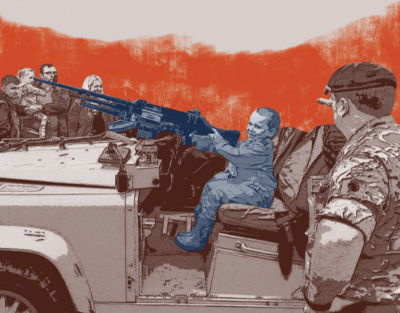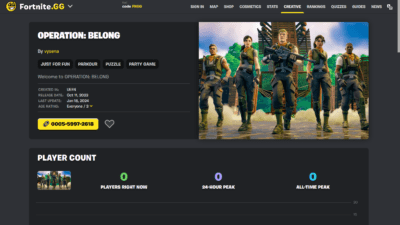Government accused of military propaganda in the classroom
ForcesWatch / Quakers in Britain press release
The Government’s material for schools about the armed forces has been criticised today by the human rights group ForcesWatch (1) and Quakers in Britain (2).
In a written report and a graphic animation, the organisations explain why the British Armed Forces Learning Resource (published in September 2014 by the Prime Minister’s Office (3) (4)) is a poor quality educational resource, and expose the resource as a politically-driven attempt to promote recruitment into the armed forces and “military values” in schools.
The document is framed as a History, English and Citizenship resource for children and teenagers from as young as 5 years old. Endorsed and promoted to all schools by the Department for Education, its stated aim is to ‘to educate children about the work of the UK armed forces’.
The critique (see report and animation details below) includes responses from a number of educationalists worried about Government and the armed forces producing materials for schools inappropriate for use in education. Don Rowe, Citizenship Education consultant and former Director of Curriculum Resources at the Citizenship Foundation, stated that the Resource is ‘demonstrably biased’ and has called for its withdrawal. He says,
Culturally, this is the kind of resource one gets in countries with less-than-democratic structures where civic education is used by governments to manipulate citizens into an uncritical attitude towards the state. In the UK we used to have a system of education which was ‘at one remove’ from the government and one of the reasons for this was precisely to prevent the possibility of authoritarianism through control of the education system.
The critique also accuses the government of overblown rhetoric to promote the military in classrooms, glorifying “military values” and sanitising war. Michael Fallon, Secretary of State for Defence, claims in the Resource that, ‘The military ethos is a golden thread that can be an example of what is best about our nation and helps it improve everything it touches.’
The report, A critical response to the ‘The British Armed Forces: Learning Resource 2014’, concludes that the educational and ethical concerns strongly indicate that:
The ‘British Armed Forces: Learning Resource 2014’ should not be used in schools as a learning resource, or should only be used in conjunction with alternative materials, and it should not be promoted as a learning resource by third parties.
The animation, The British Armed Forces: Propaganda in the classroom? presents an engaging exploration of why the British Armed Forces Learning Resource blurs the necessary distinctions between government, the military and the education system.
Owen Everett from ForcesWatch, said,
“We consider that the document amounts to political interference in children’s education and that the Department of Education is failing in its legal duty, under the 1996 Education Act to safeguard education from politicisation.”
Paul Parker, Recording Clerk, Quakers in Britain, said,
“Quakers reject the notion that war is inevitable. Holding that each life is sacred, we put resources into nonviolent ways of solving conflicts and averting wars. That leads Quakers to say militarism has no place in our classrooms. This resource is ideologically-driven and should be withdrawn.”
Key concerns:
- The resource was initiated by the Office of the Prime Minister and has key sections written by government ministers including the Prime Minister. Other sections are written by current or former high-ranking military personnel. Its content is politically-driven, seeking to generate public acceptance of government policy and the use of military intervention, and it presents personal and political opinions as fact.
- It is poorly conceived as a tool for learning. For example, the language it uses and the complexity of the subject matter make it unsuitable for many of those it is aimed at. Many of the questions that it asks are introduced in a leading way and the material that would be required to explore them fully is not provided.
- The resource makes a one-sided case for the existence of the armed forces and the arms industry and provides no room for debate on alternatives to armed conflict. It presents a sanitised view of war and glorifies “military values”.The resource includes material that promotes recruitment to the armed forces and champions the government policy of promoting military-led activities in schools.
- It presents a partial and uncritical history of British involvement in war, ignoring debate over the morality and legacy of such conflicts.
ENDS
CONTACT:
Owen Everett, ForcesWatch: education@forceswatch.net
Anne van Staveren, Quakers in Britain: annev@quaker.org.uk
DETAILS:
Report: A critical response to the ‘The British Armed Forces: Learning Resource 2014’,
ForcesWatch, February 2015 (14 pages).
Available for download at: http://www.forceswatch.net/armed-forces-learning-resource
Graphic animation: The British Armed Forces: Propaganda in the classroom? Quaker Peace & Social Witness, February 2015 (5 mins 42 secs)
Available to view at: http://youtu.be/wB9JD6P1RCM
NOTES:
1. ForcesWatch scrutinises armed forces recruitment practices and proposes changes in policy aimed at better serving the interests of young people. See http://www.forceswatch.net
2. Quakers in Britain are known formally as the Religious Society of Friends. Around 23,000 people attend 478 Quaker meetings in Britain. Their commitment to equality, justice, peace, simplicity and truth challenges them to seek positive social and legislative change. See http://www.quaker.org.uk
3. Prime Minister’s Office (2014), The British Armed Forces: Learning Resource 2014, http://www.armedforceslearningresources.co.uk/
4. Press release from Ministry of Defence, Anna Soubry MP, Department for Education and Prime Minister’s Office (2 September 2014), Armed forces learning, http://www.gov.uk/government/news/armed-forces-learning
See more: military in schools/colleges, recruitment, ForcesWatch, education, military ethos, public relations










